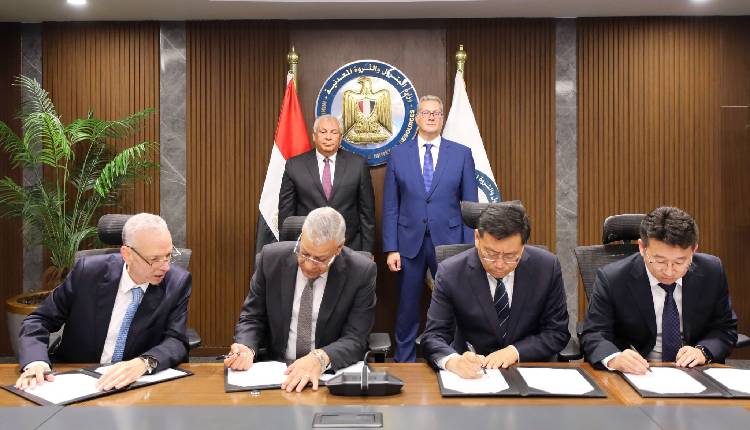Egypt signed final contracts on Sunday to begin construction of a $658 million phosphoric acid production complex in the Western Desert, marking a major step in its push to shift from raw mineral exports to high-value industrial processing, a petroleum ministry statement read.
The deal was signed in the presence of Petroleum and Mineral Resources Minister Karim Badawy and New Valley Governor Mohamed El-Zamlout at the ministry’s headquarters in the New Administrative Capital.
The project, located at Abu Tartur Plateau in the New Valley Governorate, will use domestically sourced phosphate ore to produce 250,000 tons per year of high-grade phosphoric acid in its first phase. It is one of Egypt’s largest industrial investments in the mining sector.
“This is a historic move from exporting raw materials to launching an integrated industrial value chain,” Minister Badawy said. “It reflects the third pillar of our strategy—maximising returns from mineral wealth.”
The construction will be led by a Chinese consortium made up of China State Construction Engineering Corporation (CSCEC) and East China Engineering Science and Technology Co., Ltd. (ECEC), in partnership with Income Egypt. The project is being developed under the umbrella of the Abu Tartur Phosphoric Acid Company, backed by several Egyptian state-owned firms including Phosphate Misr, Abu Qir Fertilizers, and Petrojet.
Agreements signed included a shareholders’ framework and an EPC (engineering, procurement, and construction) contract with the Chinese alliance.
Governor El-Zamlout described the project as a “turning point” for the New Valley, Egypt’s largest governorate by area but long overlooked in terms of industrial development.
“This complex will be a cornerstone in transforming the region into a strategic hub for mining-based industries,” he said, noting it would generate hundreds of jobs and attract further investment to the Western Desert.
The project aligns with Egypt’s broader strategy to localise key industries, increase the contribution of the mining sector to GDP, and reduce the country’s reliance on raw material exports.
Mohamed Abdel Azim, Chairman of Phosphate Misr, said the facility would serve as a launchpad for future downstream industries based on Egypt’s vast phosphate reserves.
“We view this not as an endpoint, but as a foundation for a series of value-added industrial projects that can transform Egypt into a key player in the global phosphate supply chain,” he said.
Attribution: Amwal Al Ghad English
Subediting: Y.Yasser


